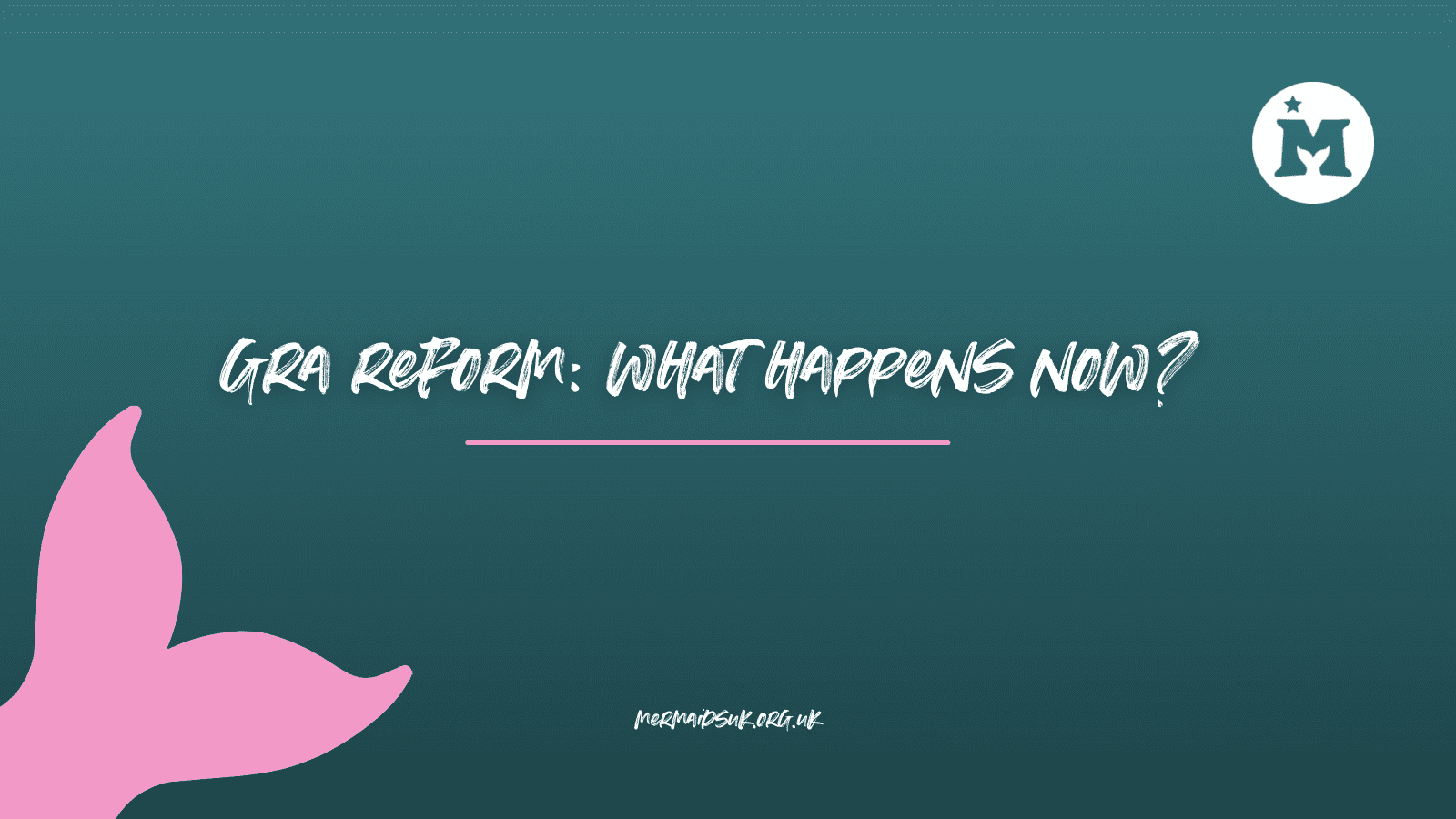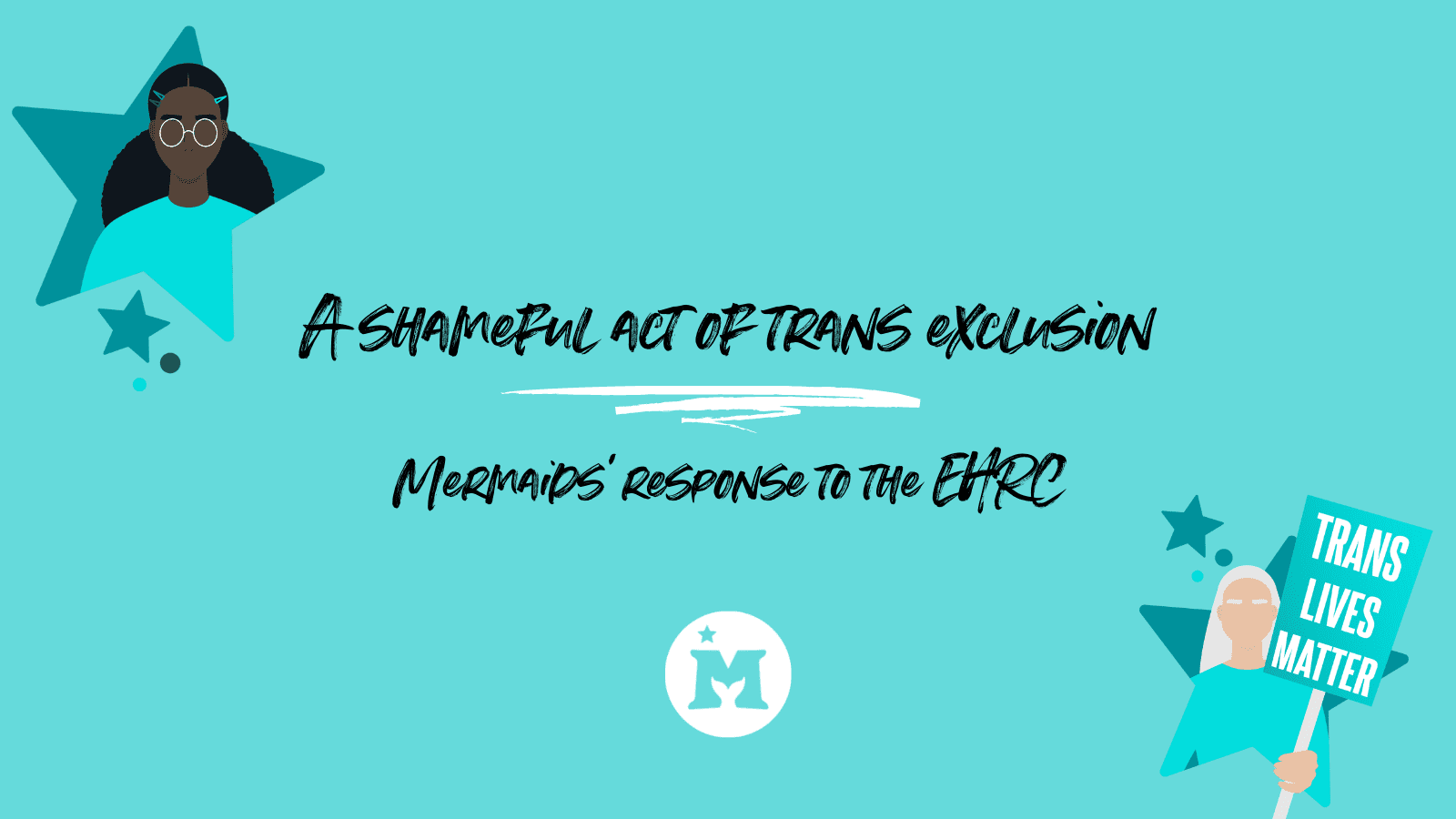MPs show overwhelming support for GRA reform at Westminster. Kai O’Doherty (they/them), Head of Policy and Research at Mermaids, asks when will the Government act?
On Monday 21 February 2022, Westminster held a debate on reform to the Gender Recognition Act 2004 (GRA), triggered by a petition signed by over 130,000 trans rights supporters.
In addition to impassioned, supportive cross-party speeches from MPs, the Minister for Equalities, Mike Freer MP, committed the Government to some further specific reforms on language and spousal veto – but with the wider population’s overwhelming support for reform, both in and outside of the House, how much longer can the Government delay change?
The current Gender Recognition process is deeply invasive, traumatising, unnecessary, and dehumanising. It’s time to get reform done. pic.twitter.com/A70kFJWMT2
— Mhairi Black MP🏳️🌈 (@MhairiBlack) February 21, 2022
There is clear cross-party support for reform, with over 15 MPs attending on Monday and by far the majority of those in attendance were calling for the GRA to be updated. Multiple MPs spoke to the real lived experiences of their trans constituents, and the difficulties we face in living our lives with dignity and respect under the current GRA process, and ongoing political climate generally.
What MPs said
MP’s echoed how broken the GRA process is (the process that allows some trans people to change the sex on their birth certificate, through the issuing of a Gender Recognition Certificate, or GRC). At the time of the GRA consultation for England and Wales in 2018, fewer than 6,000 trans people had successfully obtained a Gender Recognition Certificate, compared to Government estimates of 200,000-500,000 trans people living in the UK – that’s less than 3% of trans people. The system is clearly inaccessible and not fit for purpose.
Thank you to @angelaeagle, @mhairiblack, @LaylaMoran, @KirstySNP, @lloyd_rm, @crispinblunt and all of the other MPs who spoke so passionately for trans equality tonight 🏳️⚧️ Stay tuned for an update from our policy team on what this means for #GRAReform.
— Mermaids (@Mermaids_Gender) February 21, 2022
We thank those MPs who re-centred the conversation on the nightmare that trans people face when going through the outdated process. The requirement for multiple pieces of medical evidence and diagnosis, the requirement to prove you have been “living as that gender” for two years, and the need for spousal consent present trans people with often humiliating, time-consuming and backwards bureaucracy to navigate.
Even the Minister for Equalities himself dispelled myths of GRA reform relating to the Equality Act 2010 protections, a common fear tactic used by opponents, and MPs reiterated that the GRA is simply about a trans person changing their legal sex on their birth certificate.
What the Government committed to
Mike Freer MP, the Minister for Equalities, committed in his speech to making the process “kinder and gentler, and more supportive and patient-led” by:
- “amending a specific reference to ‘disorder’ via a remedial order as soon as possible”.
- removing “what is known as spousal veto” through the implementation of the Divorce, Dissolution and Separation Act 2020.
- reviewing “intrusive nature of the information that might have to be required for a panel”.
- “ensuring that the whole client/patient…process [via GICs, mental health services and GPs] is streamlined and made faster, more effective and client-led”.
While these reforms are welcomed, the question remains: when will the Government put their words into action, and reform the GRA as has been promised since 2018?
If the wider population, the majority of MPs attending the debate, and even the Minister himself agree that “trans people deserve the dignity of being known as their true selves” – when will this clear public mandate be fulfilled?
What can you do?
Write to your MP, explaining why you care, and urge them to hold the Government to account for their commitments for reform.
You can also support trans kids and their families by signing up to our newsletter, signing up for a fundraising challenge or getting in contact. We have so much more to do, and we need your help!


